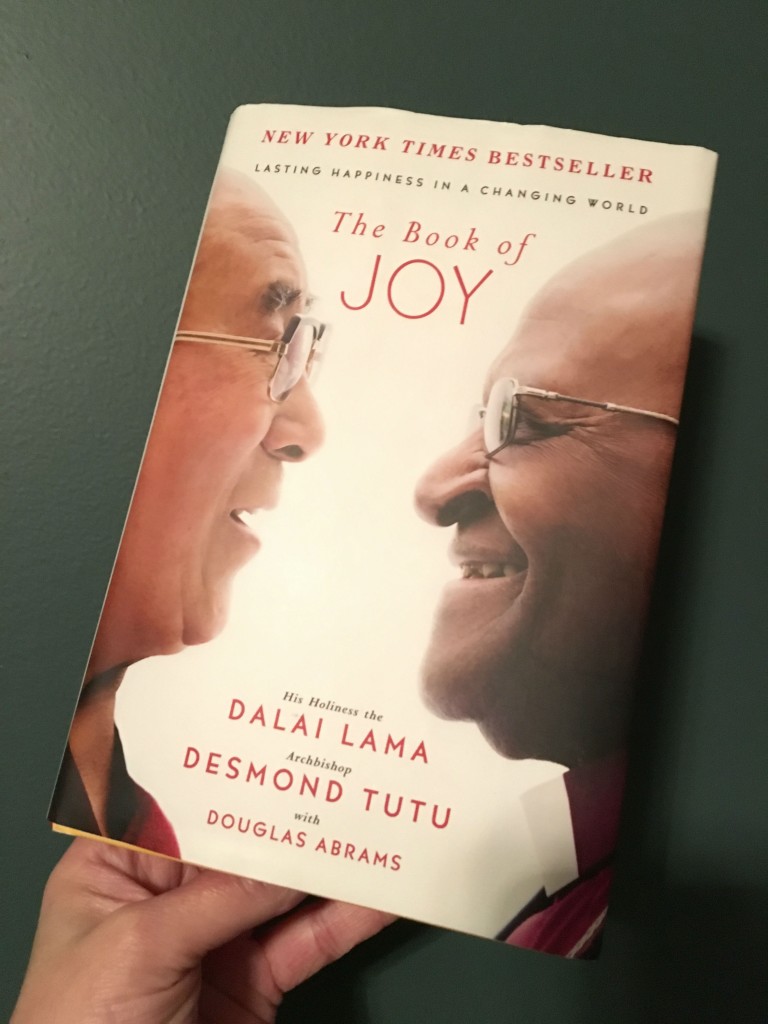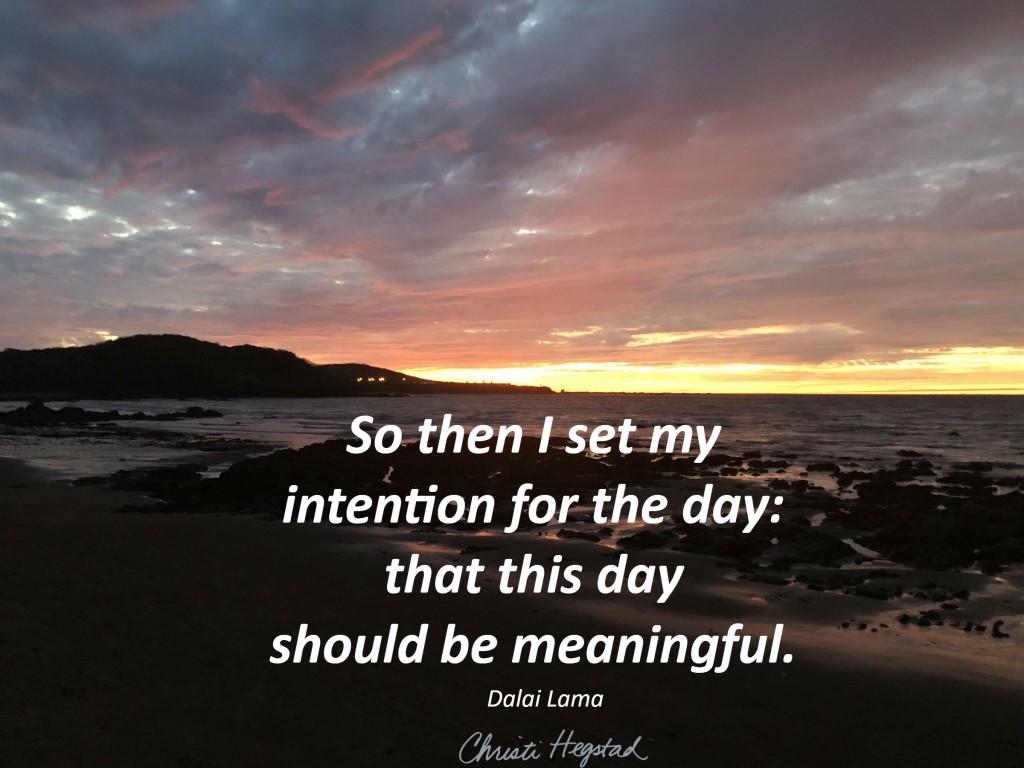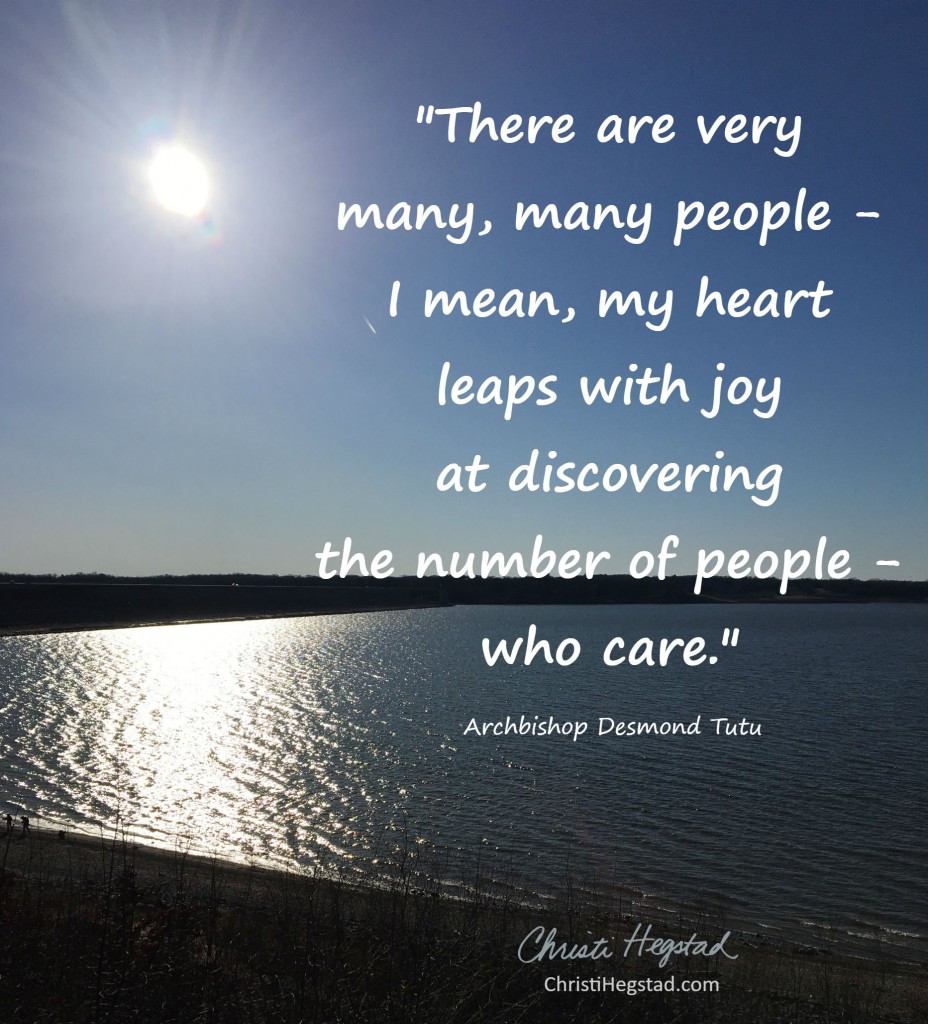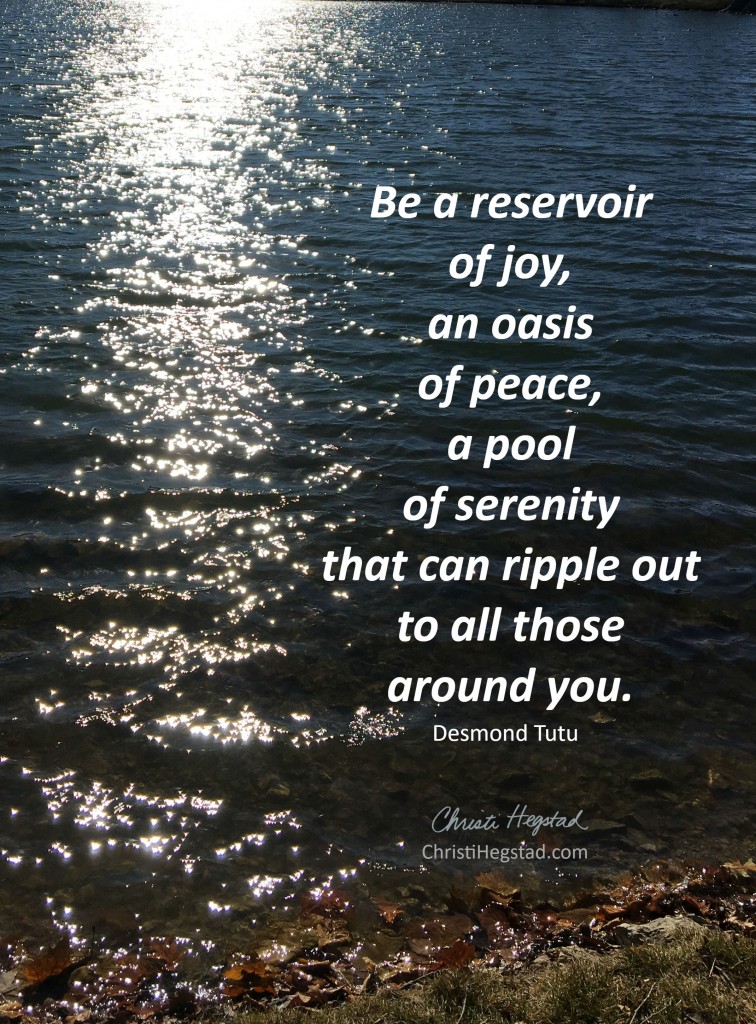
After three different people recommended The Book Of Joy to me within days of each other, two thoughts rolled through my mind: Either they consider me a joy-spreader and know this book will resonate, or they think I need more joy in my life and know this book will help. Either way, I pay attention to ‘coincidences’ like this, because they always occur for a reason! This time was no exception.
Since I posted several quotes from this beautiful book on Instagram while reading (I highlighted something on nearly every page), I feel like I’ve already written a blog with my top takeaways; today, however, I attempt to distill the many lessons from this book into a few shareable concepts.

High-Level Overview
The Book Of Joy offers a series of conversations between His Holiness The Dalai Lama and Archbishop Desmond Tutu, beautifully captured by Douglas Abrams, when the three spent a week together to celebrate the Dalai Lama’s 80th birthday. While you might think bringing these two holy men together would result in a quiet and contemplative week, their sprightly personalities definitely shined through. “At times the Dalai Lama and the Archbishop seemed to be as much a comedy duo as two venerable spiritual teachers,” writes Abrams, sprinkling their deep spiritual lessons with their seemingly endless jokes and laughter.
Essentially, the book attempts to answer this question: How can we possibly live with joy in a world with so much suffering? The wisdom shared, humanity displayed, and real-world experiences described by these two leaders brought so much more than base answers to this lifelong question. I didn’t read so much as absorb this book.
Top Takeaways
1. Compassion + Kindness = Strong Leadership.
“As I sat next to the Dalai Lama,” recalls Abrams, “I could feel in his posture and his body language the power of a leader. I remembered how strongly and tenderly he held my hand the first time we met. His kindness did not in any way diminish his power, a valuable reminder that compassion is a feature of strength, not weakness.”
Around the world, people look to the Dalai Lama and Archbishop Tutu for guidance, fill stadiums to hear them speak, and seek them out in times of challenge as well as celebration. Their leadership is marked by characteristics like compassion, inclusiveness, and leading by example – so much more effective, in my experience, than an arrogant, controlling, know-it-all style.
In addition to encouraging us to tap into our most compassionate selves, both men emphasize the importance of helping young people do this as well. Education is key and we will be well-served – now and in the future – by teaching children compassion, respect for self and others, and that the source of joy is within them. This education stems not only through teaching skills and strategies, but also by modeling such truths ourselves as adults.
2. Choose How You Will Be. Every Day.
These leaders, who both spend time in daily prayer and meditation, urge us to be proactive when it comes to our happiness, wellbeing, and mental health. Trying to figure out how to let go of anger, for example, is difficult when in the midst of it. “At that point it is like a flood,” writes Abrams. “During monsoon season, it is too late to stop the flooding.”
The Book Of Joy ends with numerous “Joy Practices” to implement, most which I recognize from my positive psychology research as well. I particularly like the simple practice of setting an intention each morning. “So then I set my intention for the day: that this day should be meaningful,” the Dalai Lama explains. “Meaningful means, if possible, to serve and help others. If not possible, then at least not to harm others. That’s a meaningful day.”
We have the power to choose who we want to be and how we want to act every day, in every moment. When we remember this, we remember that we can choose joy, compassion, and purpose over less helpful options. “The way we see the world is the way we experience the world,” Abrams shares.

3. People Are Inherently Good.
“We are fundamentally good,” the Archbishop explains. “The aberration is not the good person; the aberration is the bad person. We are made for goodness.”
While this truth is stated multiple times in multiple ways throughout this book, I read this particular segment shortly after a senseless tragedy in the U.S., one that took many innocent lives, and the words brought tears to my eyes and softness to my soul.
There is more good than bad, there are more helpers than villains. We must remember this. We will uplift the world, invite a stronger sense of purpose, sustain greater joy and spread that joy to others when we give more attention and energy to seeking out the good.
To shining the light on those doing good.
And to being the good ourselves.

Above And Beyond
Honestly, my biggest takeaway from this book goes beyond any specific statement or concept. When I see this on my bookshelf in the future, I believe I will mostly recall the feeling I experienced every time I sat down with it.
Living in exile for over 50 (yes, 5-0) years. Enduring apartheid and the accompanying fallout. Ongoing cancer treatments. Suffering in varying forms. The sudden loss of family members, the pain of injustice, the sting of regret.
These two leaders have been through a great deal and yet, their lives are characterized by happiness. Kindness. Purpose. Uplifting others. Compassion.
True joy.
Which comes from within, and which comes from helping others.
We have all had that experience of feeling truly uplifted when we give someone else a hand. When we recognize our collective humanity, understanding that everyone – everyone – is challenged with hardships and struggles, we can be kinder and gentler to others as well as to ourselves. By reaching out to help someone else, we invariably bring an element of joy to all involved – including ourselves.
As Archbishop Tutu wisely suggests, “Give the world your love, your service, your healing, but also give it your joy. This, too, is a great gift.”
 An inspiring, well-written, and beautiful book. I recommend it for leaders, joy seekers, meaningful achievers, and anyone desiring a bit of calm in a storm.
An inspiring, well-written, and beautiful book. I recommend it for leaders, joy seekers, meaningful achievers, and anyone desiring a bit of calm in a storm.





